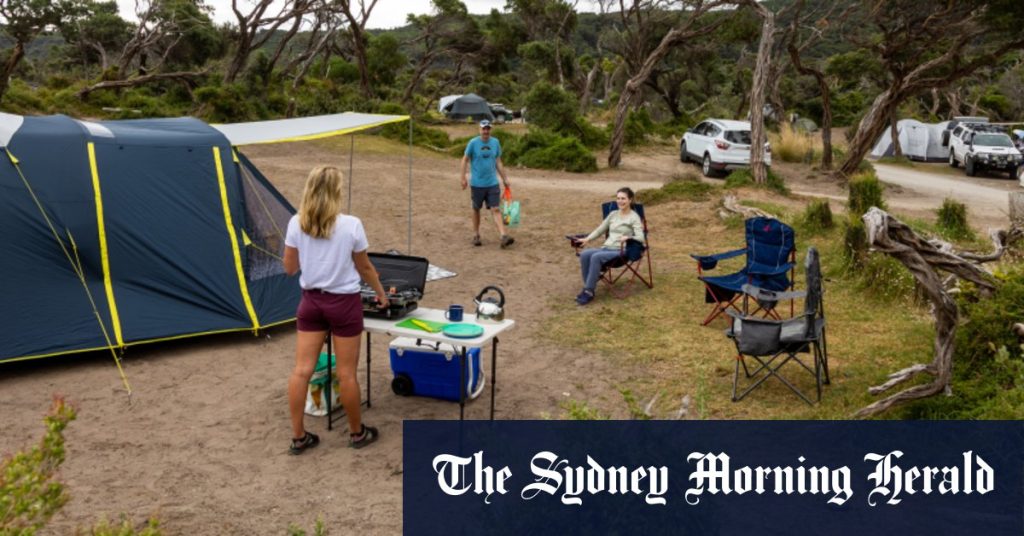The Victorian government’s initiative to offer free camping in national parks has backfired, resulting in a surge in bookings but a significant number of no-shows, leaving campsites empty and frustrating eager campers. While intended to boost tourism and access to nature after a challenging period of bushfires and extreme weather, the policy has inadvertently created a system ripe for exploitation. The lack of financial penalty for non-cancellation has led to a disconnect between intention and action, with individuals booking sites without firm plans, effectively blocking others from enjoying the parks. This has sparked criticism and calls for a reassessment of the policy’s implementation to ensure equitable access and the sustainable management of Victoria’s natural resources.
The core issue lies in the human tendency to overestimate future commitment, particularly when there are no immediate consequences. Professor Nitika Garg, a consumer behaviour expert, highlights the predictable nature of this outcome, explaining that free bookings remove the disincentive for non-attendance. The ease of securing a spot without financial obligation encourages speculative reservations, with individuals banking on favorable conditions or a change in personal circumstances. This “no-cost, no-loss” scenario fuels a significant gap between intention and behavior, resulting in a high proportion of booked but unoccupied campsites. This ultimately undermines the intended purpose of the policy, denying genuine campers access to sought-after locations.
The frustration among campers is palpable. Those who have diligently planned their trips and adhered to booking procedures find themselves confronted with empty campsites, while others are effectively locked out due to phantom reservations. This paradoxical situation, where bookings are plentiful but availability is scarce, highlights the unintended consequences of a well-meaning initiative. The experience of Roger Verwey, who encountered numerous unoccupied sites despite the high demand, exemplifies the widespread dissatisfaction among campers. This sentiment is echoed by Jason Polson, director of adventure gear shop Rooze, who has observed a decrease in last-minute tent bookings despite the apparent surge in camping interest.
The impact extends beyond individual campers to businesses reliant on park tourism. Rooze’s experience underscores the economic ramifications of the policy’s shortcomings. Reduced last-minute purchases indicate that potential campers, discouraged by the booking system, are opting out altogether. This unforeseen consequence further complicates the narrative of increased park usage, revealing a more nuanced picture of the initiative’s actual impact. The apparent increase in bookings masks a deeper problem of inefficient resource allocation and lost economic opportunity for businesses catering to the outdoor recreation market.
Adding to the complexity of the situation are reports of strain on Parks Victoria’s resources. The influx of bookings, whether utilized or not, has reportedly led to closures of facilities like toilet blocks and limitations on access to certain areas. The limited number of park rangers further exacerbates the problem, hindering effective monitoring and enforcement. This creates a challenging environment for both park visitors and staff, undermining the overall park experience and raising concerns about the long-term sustainability of the system. Campers like Prue Hasler express concern about the deterioration of park conditions and the lack of adequate oversight due to limited staffing.
The debate surrounding potential solutions highlights the diverse perspectives on addressing the booking system’s flaws. Suggestions range from introducing penalties for no-shows, implementing a nominal booking fee to deter frivolous reservations, to maintaining the current fee structure and emphasizing its contribution to park upkeep. Some campers advocate for stricter enforcement, with rangers patrolling sites and charging those who fail to occupy their reserved spots. Others propose a middle ground, suggesting a small fee to discourage speculative bookings while maintaining affordability. Conversely, there are those who support the original fee structure, recognizing the crucial role of these fees in maintaining park infrastructure and resources. This diversity of opinion underscores the complexity of balancing accessibility with responsible resource management.

